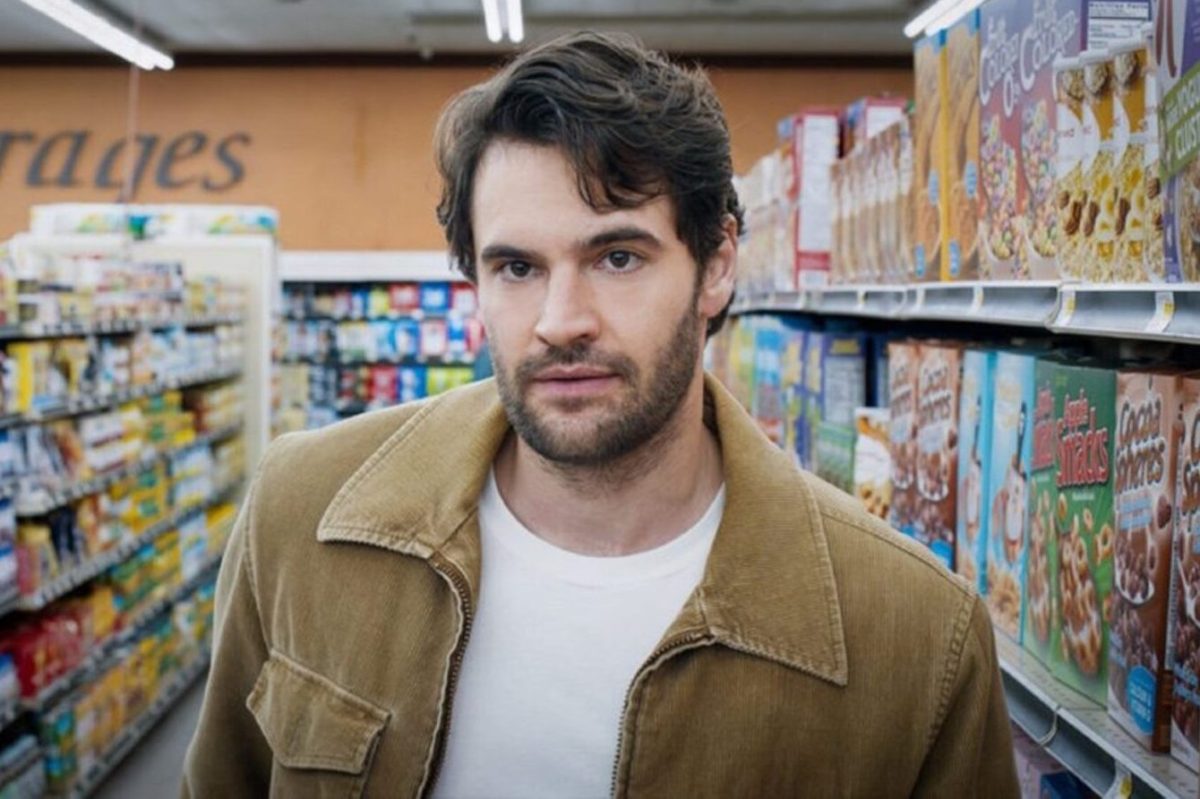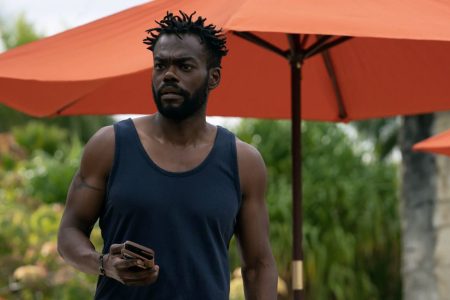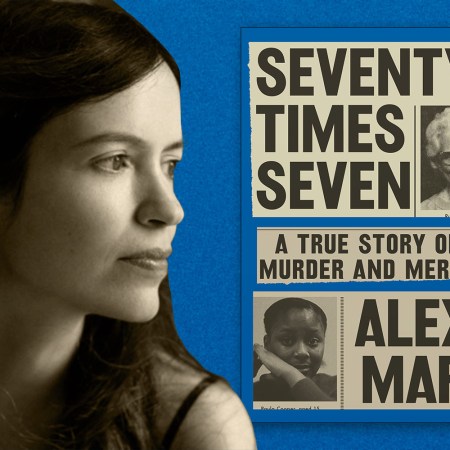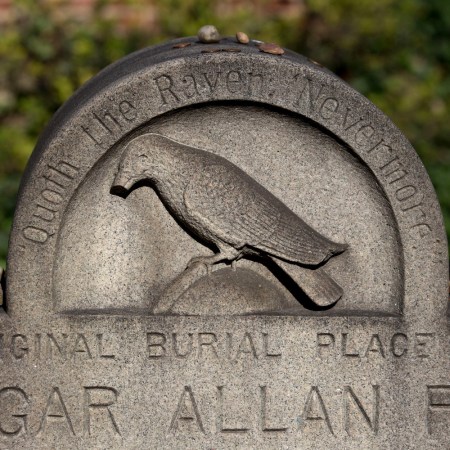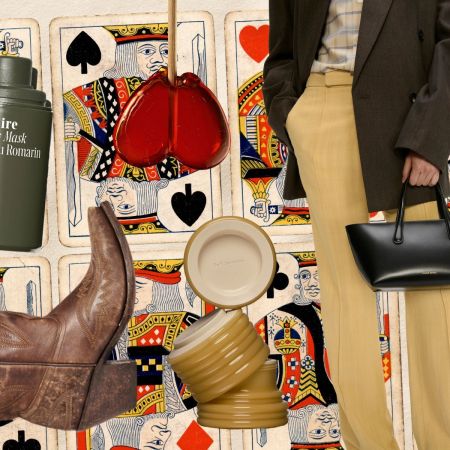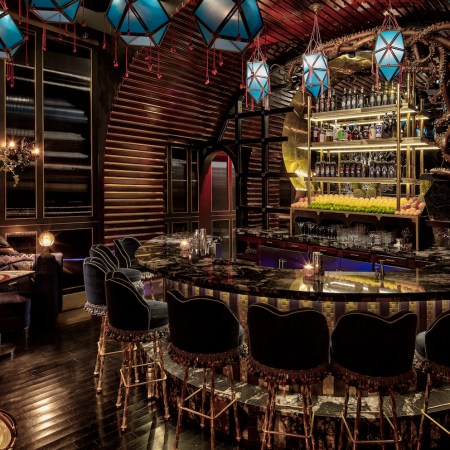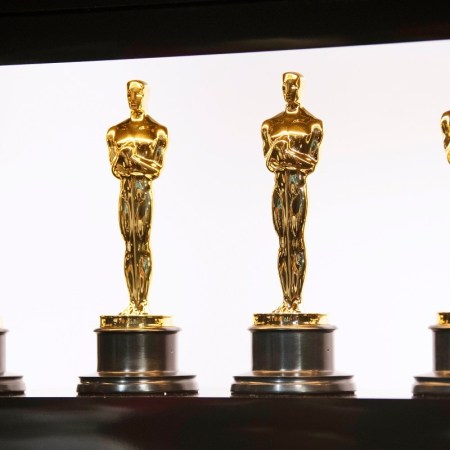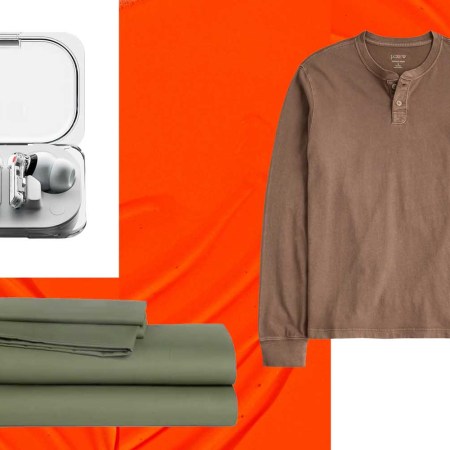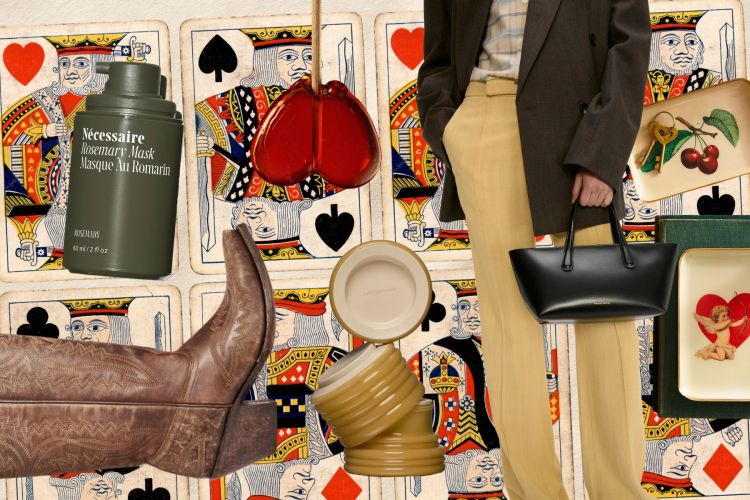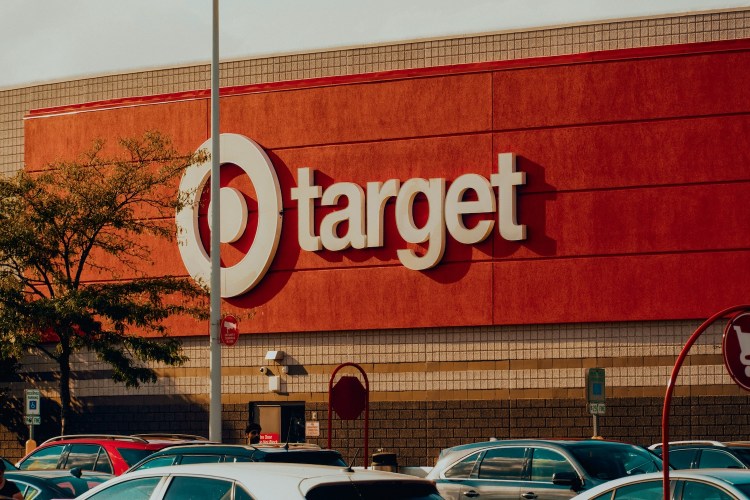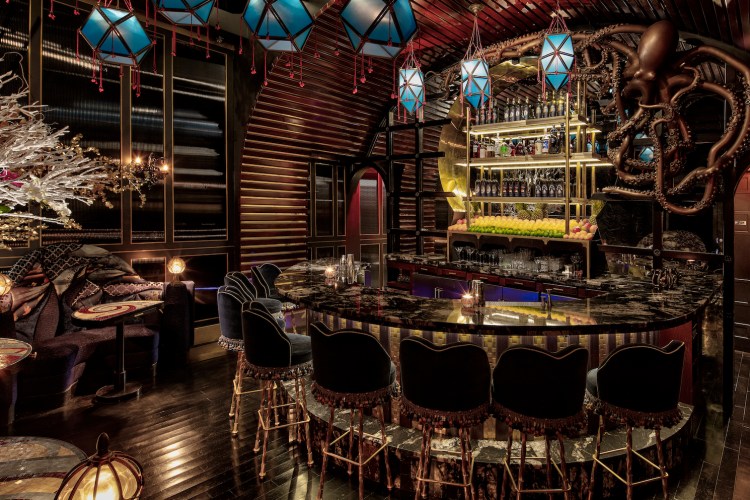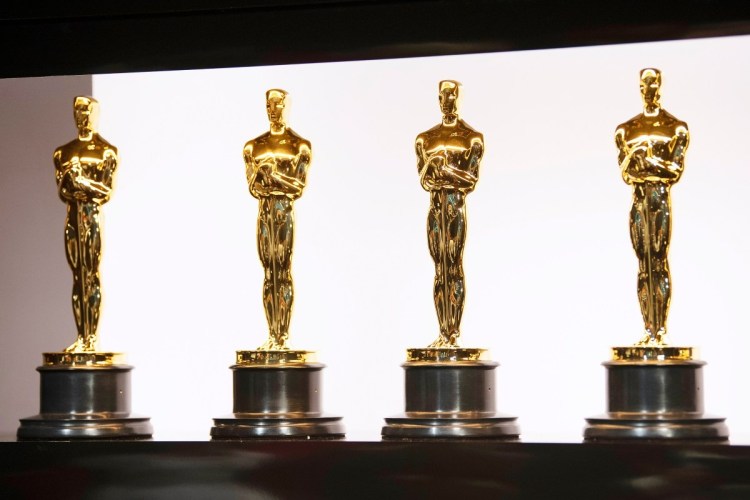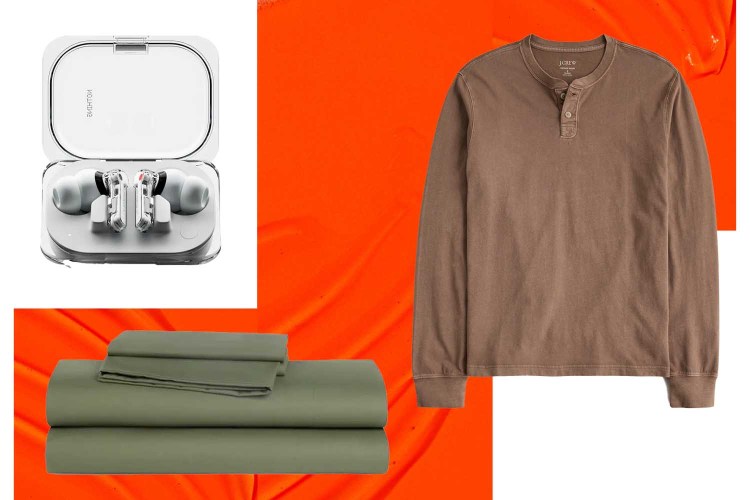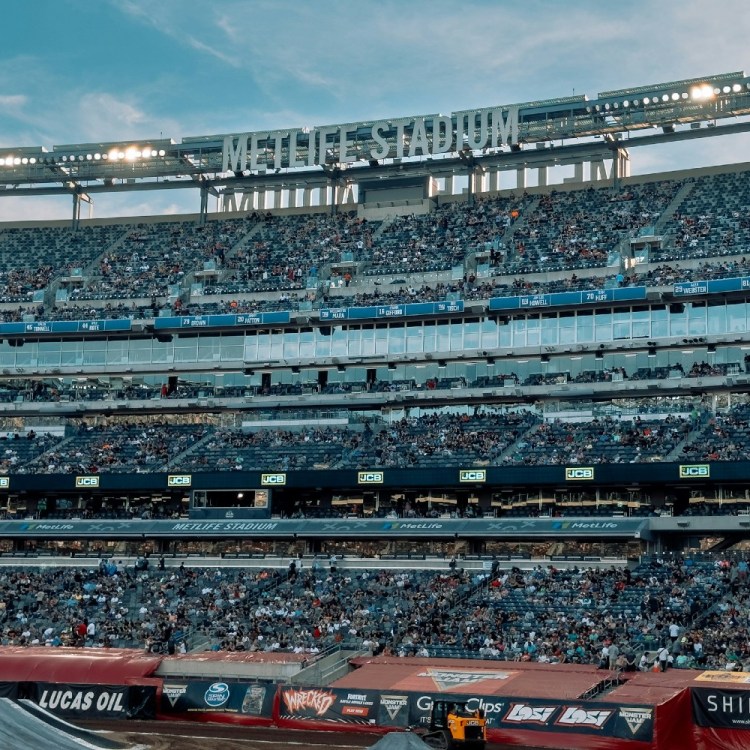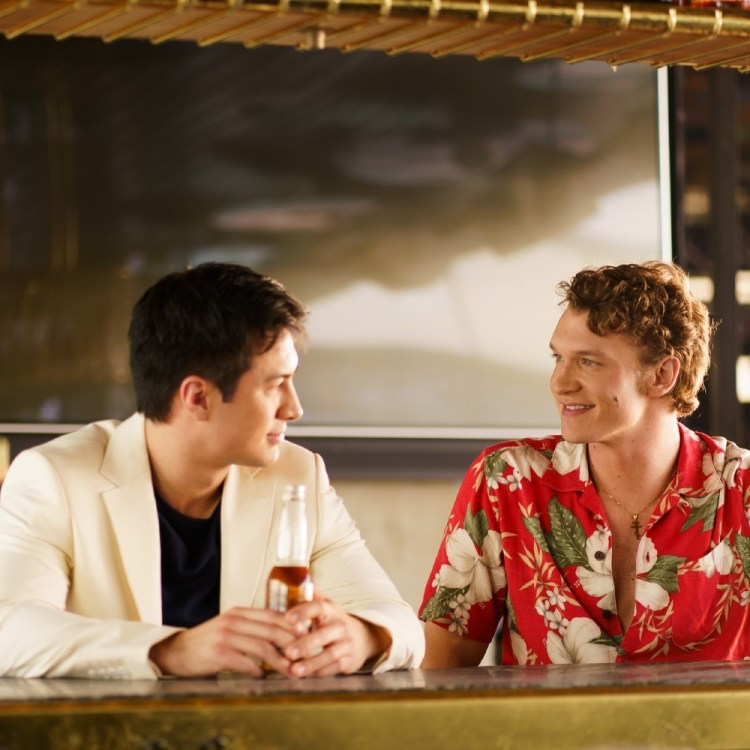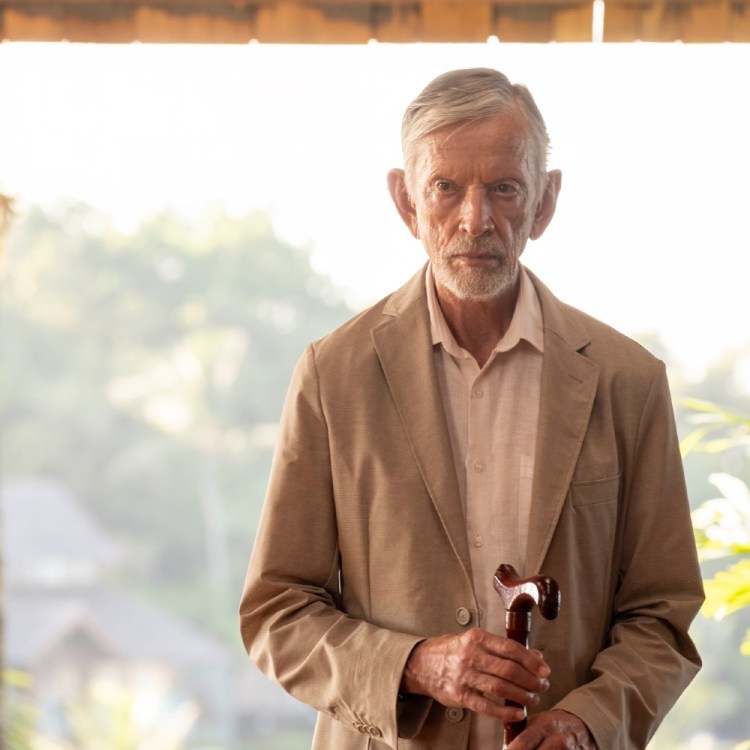In Peacock’s new series Based On A True Story, Tom Bateman plays Matt, a SoCal plumber who also (spoiler!) just so happens to be a serial killer. A couple of his clients (Kaley Cuoco and Chris Messina) catch onto his misdoings and blackmail him into doing a mysterious true crime podcast from his devious perspective, and the hijinks only get zanier (and riskier!) from there.
But does Bateman have what it takes to make it in the bloody and titillating world of true crime podcasts? And why, as a Brit, does he think we Americans even like those terrifying things anyway? InsideHook talked to the actor about how he’s like his character, the sad feeling of being invisible and why American interest in true crime far outpaces that of the Brits.
InsideHook: There’s a little bit more revealed about your character, Matt, every single episode. How much did you know about the character and his backstory going in, or were you as surprised as the rest of us?
Tom Bateman: When they offered me the role I knew where he would go. We were given two episodes at the time because that’s what [co-creator] Craig [Rosenberg, of The Boys] had, but he also had an outline for three and four so he could tell us where it went.
Other than that, we kind of learned as we went deeper into shooting. Quite a lot of the time, I’d get a text from Craig at 11 o’clock at night and he’d go, “I’ve just emailed you the new episode,” and so I’d read it and think, “Oh, my God, this is crazy.” But it was really exciting, too. It felt like we were creating something that could go anywhere, which was a really cool place to be creatively.
The further you get into the show, the more you realize that Kaley Cuoco and Chris Messina’s characters, Ava and Nathan, have really made a very dumb choice in trying to blackmail you.
They really did.
Do you think that they’re naive or are they just coming from a place of desperation? I mean, you’re an incredibly dangerous serial killer, and they’re still sleeping at their house.
It’s such a preposterous idea for a show, but I think tonally what Craig and other groups did so well was create a world that had its own universe in a way, like its own stakes and its own sense of reality. It has a very playful, dark humor to it. It was such a big swing, but [Kaley and Chris] served it in such a way that I kind of bought those stakes. Like, they went on about the fact that they have no money, that she’s pregnant, they’re going to need money, he’s kind of losing his job… Everyone around them has this stuff. Everyone around them is cashing in on these things, and this is their golden opportunity. It’s a totally crazy one, though, so I guess it is out of desperation.
I think crazy decisions like that are generally made out of desperation. I think Chris plays that so, so well, too, because his character is the barometer at the beginning, similar to the audience, saying, “That’s crazy. Don’t do that.” Whereas Ava says, “This is our show, we should do this!” They sort of hem and haw for so long and then they say, “Fuck it. Let’s do it. Let’s try it. What have we got to lose?”
Constantly throughout it’s a question of, “What are we doing? Let’s call this off now. Oh, God, we’re in too deep. We can’t pull this off now…” Those little moments of realizing you’ve made a deal with the devil and you can’t go back are what really punctuates the series, I think.
William Jackson Harper Talks True Crime and “The Resort”
We caught up with the actor ahead of his new Peacock seriesChris and Ava are also dealing with their own classic midlife crises, too. It’s that feeling where all of a sudden you realize that your life has maybe peaked. One moment you’re 27 and then all of a sudden you’re 44 or something, and it’s like “Shit, what am I going to do now? I still have 40 more years of this life, but is it all downhill from here?”
I think one of the things that really struck me as being such a unifying human experience is that feeling of being invisible. I know my mom has said, to me, that something happened to her at an age where she suddenly was invisible, like people were looking through her.
It broke my heart hearing that, but I think it’s something that we can all relate to. We’ve all been in a position where you think, “I don’t feel seen.” That’s kind of where Nathan and Eva’s characters are coming from, that feeling of, “What am I doing? I have all these glamorous friends and they have all this money and these exotic lifestyles and I’m just sitting here? What is this? What are we here for? What are we doing? We don’t take any risks. We don’t try anything new.”
I hope that an audience gets behind them and falls in love with them the way I did. You end up thinking, “Go for it, even though it’s stupid and crazy. Go for it!”
Minus the homicidal tendencies, are you as exacting as Matt? As in, were you to create a podcast, would you have as much to say about its format and production as Matt did?
Yeah, in the way that when I’m passionate about something I’m really passionate about it. If I’m into food, let’s say, then I want to eat food and cook food and talk about food all the time. So in that way I am Matt.
This podcast happening is the thing that Matt’s been waiting for, really. It’s the thing that’s going to give him the notoriety and fame and excitement that he’s always wanted. So of course he’s going to stay up all night thinking, “How can I do this? I want to do this. Oh, this could be better…”
That’s like me with food. I lie in bed and think, “How can I make that spaghetti sauce better? I know what I’ll do! I’ll buy some bit more basil.” In that regard, we are the same.
Growing up here in the States, I remember reading books about Charles Manson and Jack the Ripper and the Zodiac Killer when I was arguably much too young. It felt like a very universal thing, too. Like, it was just something kids of a certain age did, like reading books about UFOs and Bigfoot — at least in the ‘80s and ‘90s. Is that fascination with murder as prevalent in the UK?
You know, it’s interesting. It’s not so much a thing in the UK. We have our Jack the Rippers, our Jekyll and Hydes, our Sherlock Holmes and Moriarty, like we have those kinds of fascinations with that dark underbelly of London. It’s interesting, though, that most of ours are in set in history. Like, if you say, “Let’s do another series about Jack the Ripper,” it’s because you want to look at the underbelly of smoky dark London that no one talks about.
It gets to the kind of darkest, most unseen parts of the human soul and condition. The human psyche is like an ocean. There’s probably 12 percent that we know about, and the rest is fascinating, unknown and scary. You know how you go down to those depths in the ocean and there are the sea creatures that terrify you and you think, “How does that creature exist down in these depths? Wouldn’t the pressure crush it?” That’s like the human psyche.
I think the reason people are fascinated by serial killers and whatnot is because we look at someone and say, “Wait, this person murdered 25 women? That’s so horrific, but they’re a human being and I’m a human being, so is that in me? Could that be in me?” It challenges us, which is probably what makes it so rich a topic.
There have also been studies done, for women at least, that say that we like those types of stories because we put ourselves in the place of the victims. We think, “What would I do? Could I survive? Could I react differently?” It’s macabre, but I suppose it’s reality.
Do you know who [extreme cold survivor and motivational speaker] Wim Hof is? One of his arguments is that we’re all animals and we’re all human beings at the same time. Those instincts of survival and fight or flight, they’re still in us, even though evolutionarily, we haven’t needed them for decades.
The problem is we do live in a really scary world. It’s so upsetting to hear that people still feel that it’s not safe to go out after a certain time on their own or even in the middle of the day. My sister just came to London the other weekend to see a concert, and she was so nervous and scared. She doesn’t know how to navigate London so she was asking me, “What bus do I take? What underground do I take? Is it safe to walk?” It really upset me that she felt, as a grown woman, unsafe in London which is supposed to be one of the most forward spaces in the world. And there she was scared to be getting the tube after the show. And so we are living in that world, and I hope it goes away. But sadly, I think we’ve all been there and might always be.
This article appeared in an InsideHook newsletter. Sign up for free to get more on travel, wellness, style, drinking, and culture.
